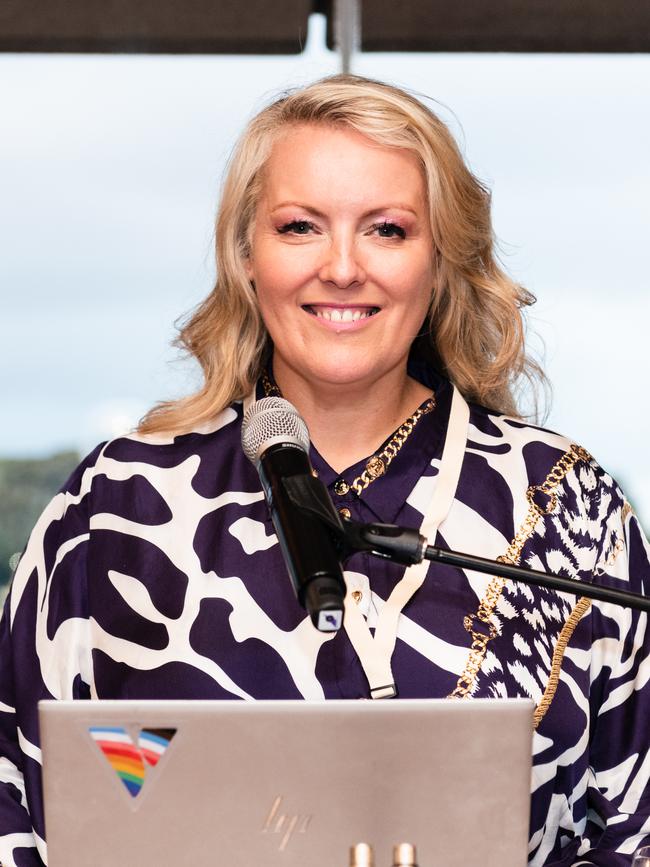We must keep an eye on the GenAI gender trust gap
Well-resourced employers should take a proactive approach to upskilling their workforce, with a particular emphasis on GenAI training modules that encourage female involvement.

The adoption of GenAI at work, home and everywhere in between continues to gather pace. According to our own estimates, around 40 per cent of Australian employees used GenAI at work last year, up almost 20 per cent on 2023.
However, the level of workplace AI usership is not uniform across all demographics – there is emerging evidence of a GenAI gender use and trust gap. According to our 2025 TMT Predictions report, we estimate that just half of Australian women will use and trust GenAI in the workplace, compared with 70 per cent of Australian men.
The existence of this gender trust gap is not surprising. Women are far more likely than men to have negative interactions with AI. In fact, we predict that this year alone 90 per cent of deepfake harassment will primarily impact women.
This is concerning as AI literacy and proficiency is fast becoming a necessary skill for workers. If women fall behind, it could exacerbate the gender pay gap across a host of different industries.
The onus is on business, government and educational institutions to work together to close the GenAI gender trust gap and encourage women to engage with GenAI at work and at home. But where to start?

We believe that well-resourced employers should take a proactive approach to upskilling their workforce, with a particular emphasis on GenAI training modules that encourage female involvement.
Pleasingly, there has been some momentum in this area. A recent Women in Tech report produced by Deloitte Access Economics and RMIT Online found that 45 per cent of surveyed organisations offer reskilling and upskilling opportunities specifically to drive gender diversity in their technology workforce.
These opportunities are sometimes hosted or developed in association with higher educational institutions and seem to be moving the dial on female participation in the GenAI ecosystem: we currently predict that Australian women will account for 40 per cent of AI-related educational enrolment in 2025.
Often, these programs are narrowcast on encouraging female participation in the technology workforce. To be clear, this is a good thing – just 30 per cent of the technology workforce are women, compared to 44 per cent of the wider workforce.
Increasing the number of women in the technology workforce and in technology roles will have a flow-on effect, increasing overall female knowledge of, and trust in, GenAI technology. But there is also a need to improve the GenAI skills of women working across a range of business functions.
GenAI’s application is broad, and the rapid adoption of Agentic AI means its use cases are multiplying exponentially. We believe that some of the industries Agentic AI will have the largest impact on are ones that have a majority of female frontline workforce.
These industries include healthcare, the retail trade and hospitality, further underscoring the importance of employers in all industries making the effort to enhance the GenAI proficiency of their female employees.
Government and industry bodies have a role to play in promoting and funding reskilling and upskilling opportunities, but they can also help close the GenAI gender trust gap in other ways. In a submission to the Senate select committee on adopting artificial intelligence, the Productivity Commission made the point that these organisations could do this not by seeking to improve trust but by seeking to improve the trustworthiness of AI technologies.
In other words, governments and industry bodies should be proactive about setting the appropriate guardrails around AI technologies because if the regulatory settings are right, public confidence will follow.
Fortunately, the federal government has been proactive in promoting voluntary codes of conduct following global developments on AI regulation to ensure it is following best practice when developing guardrails.
It has also taken specific action to criminalise the non-consensual dissemination of sexually explicit deepfakes that overwhelmingly target women.
Getting these guardrails and regulatory settings right is particularly important this year, as we are on the precipice of AI software being a default inclusion in the technology products we interact with every day.
For example, we predict that this year will be the first year that the majority of Australian smartphones will be AI-enabled.
This presents an unprecedented opportunity for most people to familiarise themselves with the basic functions of AI, an important step on the road to closing the GenAI gender trust gap.
With technology like GenAI becoming increasingly central to our lives and to the world economy, we need to remain vigilant and ensure that it is both accessed and understood broadly across all demographics.
This way, technology can be an equalising force rather than something that exacerbates existing inequalities.
Bec McConnochie is Deloitte Australia National Industry and Sector Lead.
-
Disclaimer
This publication contains general information only and Deloitte is not, by means of this publication, rendering accounting, business, financial, investment, legal, tax, or other professional advice or services. This publication is not a substitute for such professional advice or services, nor should it be used as a basis for any decision or action that may affect your business. Before making any decision or taking any action that may affect your business, you should consult a qualified professional advisor. 
Deloitte shall not be responsible for any loss sustained by any person who relies on this publication. 
About Deloitte
Deloitte refers to one or more of Deloitte Touche Tohmatsu Limited, a UK private company limited by guarantee (“DTTL”), its network of member firms, and their related entities. DTTL and each of its member firms are legally separate and independent entities. Please see www.deloitte.com/au to learn more.
Copyright © 2025 Deloitte Development LLC. All rights reserved.
-

To join the conversation, please log in. Don't have an account? Register
Join the conversation, you are commenting as Logout